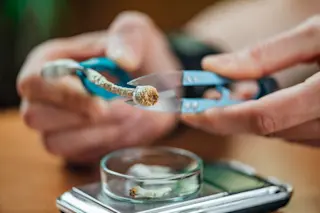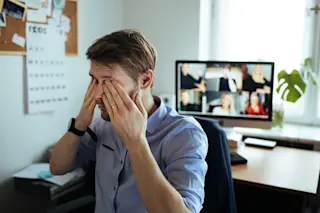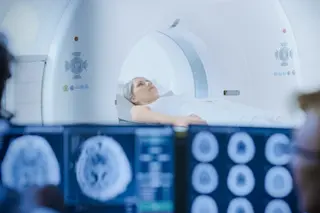For years, deep-brain stimulation—in which a neurosurgeon drills a hole in the skull and inserts an electrode far into a patient’s brain tissue—was considered a radical treatment, reserved for the most severe cases of Parkinson’s disease. Now neurologists are exploring the treatment for disorders ranging from depression to Alzheimer’s disease.
In 2009 two clinical trials began testing deep-brain stimulation (DBS) to ease intractable depression. The process was given a green light by the Food and Drug Administration to treat the worst cases of obsessive-compulsive disorder after a small pilot study showed promising results. Mount Sinai School of Medicine neurologist Giulio Pasinetti is in the early stages of testing DBS for Alzheimer’s disease, and neurosurgeon Bomin Sun of the Center of Functional Neurosurgery at Shanghai Jiao Tong University is harnessing it to treat anorexia.
Across a range of disorders, deep-brain stimulation works much the same way: A pacemaker-like device in the ...














